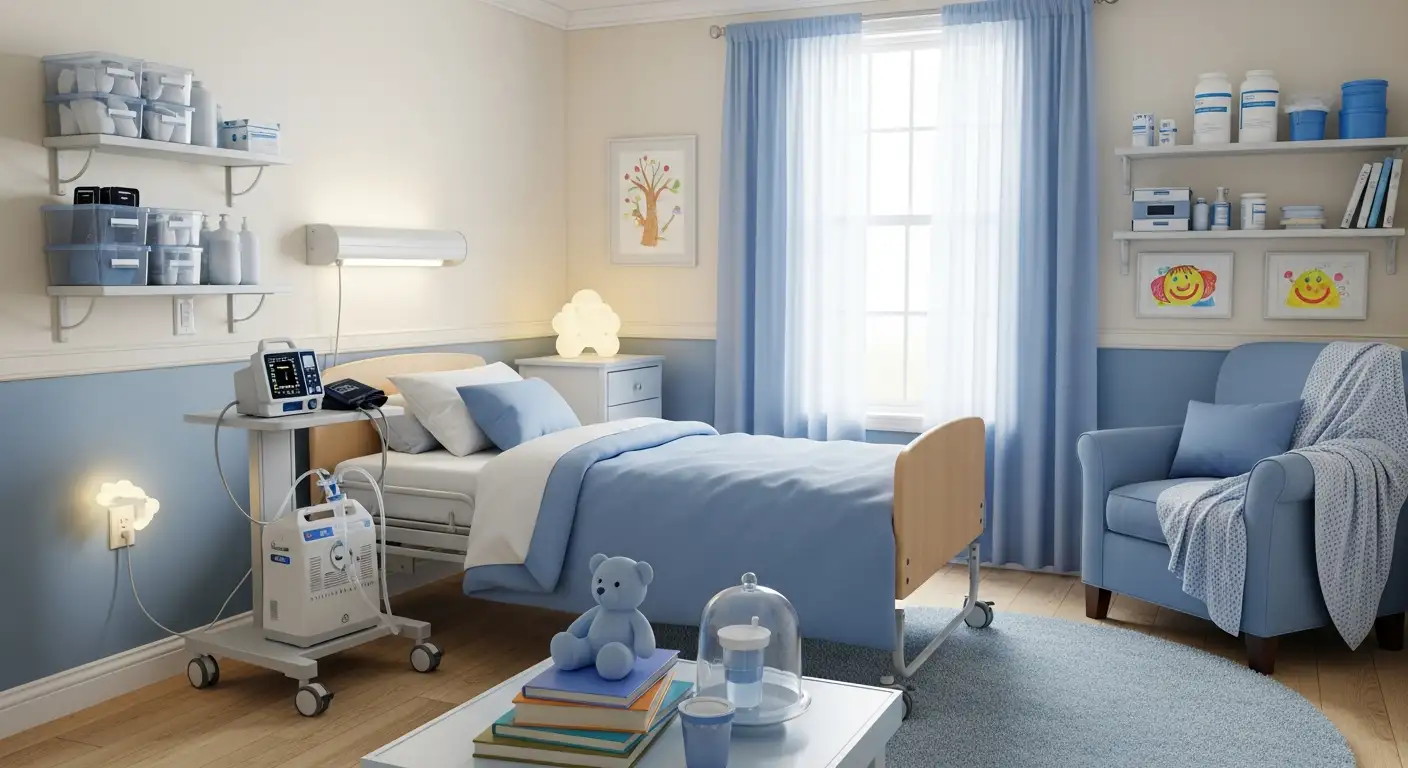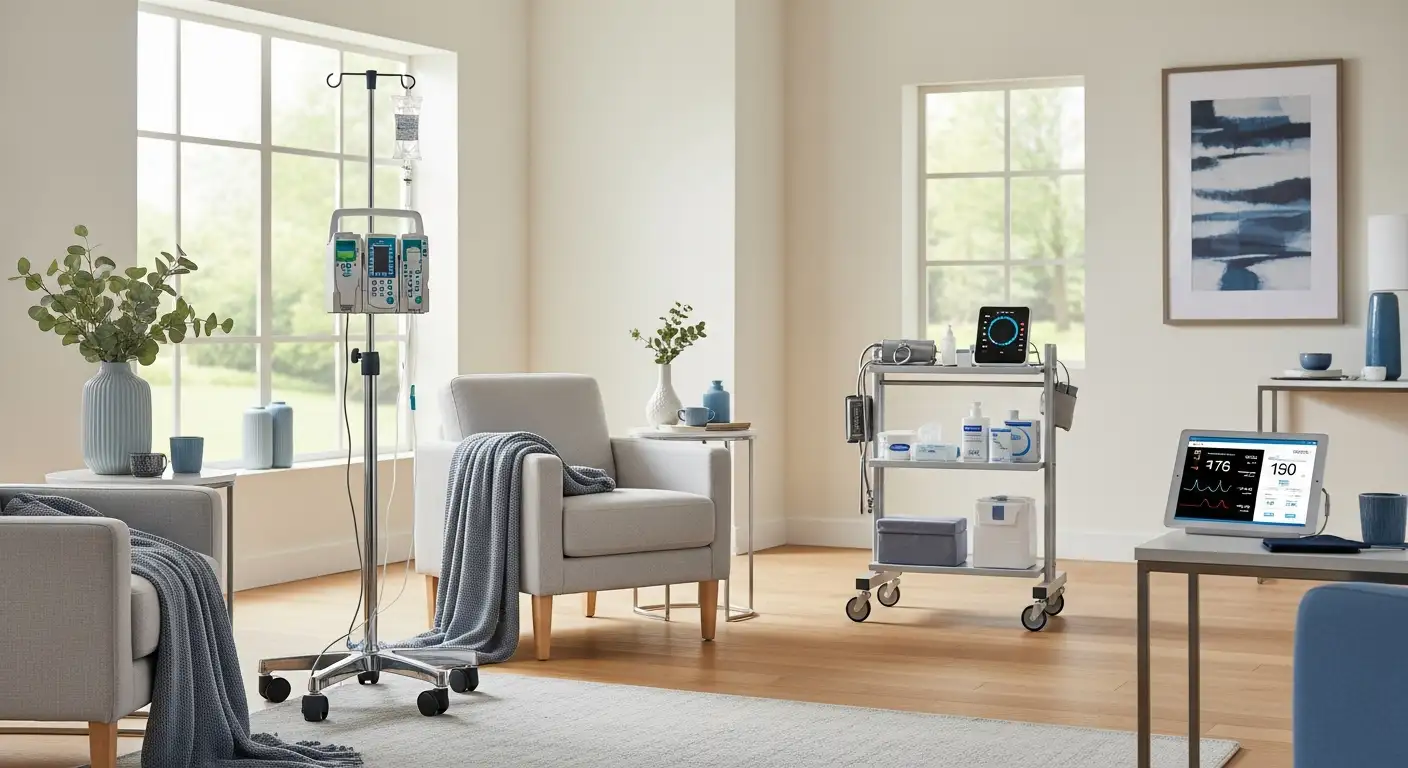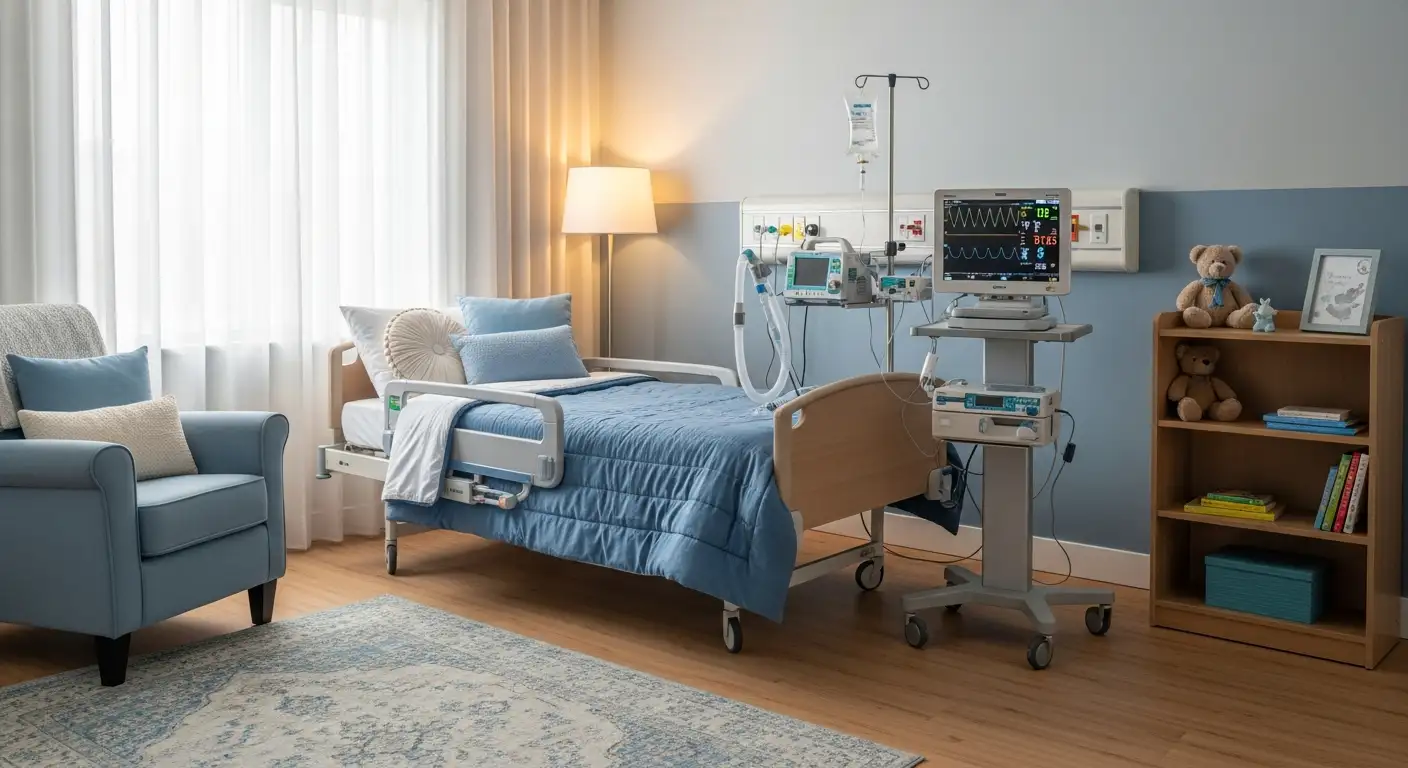Exploring Music Therapy for Seniors
Understanding Music Therapy
Music therapy is an established health profession that utilizes music to address various physical, emotional, cognitive, and social needs of individuals, particularly aging and elderly adults [1]. It has gained significant recognition over the years, becoming a common practice in schools, community centers, and assisted living facilities. Engaging with music offers older adults a means for creativity, socialization, and mental stimulation.
In music therapy, certified music therapists assess the needs of individuals and develop personalized interventions. These can include active participation, such as playing instruments or singing, as well as receptive methods like listening to music. The approach helps cater to different skill levels and comfort zones, making it appropriate for a wide range of elderly individuals.
Goals of Music Therapy
The primary goals of music therapy for seniors include:
- Enhancing Quality of Life: Music therapy promotes emotional well-being and social engagement, aiding in the improvement of overall quality of life.
- Stimulating Cognitive Function: It can enhance cognitive performance, memory, and focus, particularly beneficial for those experiencing cognitive decline.
- Alleviating Symptoms of Mental Health: Music therapy is effective in reducing anxiety, depression, and stress among seniors [2].
- Encouraging Social Interaction: Group music therapy sessions foster social relationships and interpersonal connections, helping to mitigate feelings of loneliness and isolation.
The efficacy of music therapy not only addresses immediate concerns but also focuses on promoting the long-term emotional, social, and cognitive health of elderly individuals. Non-pharmacological interventions, such as music therapy, have become essential in enhancing the quality of life for seniors, emphasizing their ability to engage in everyday activities while maintaining physical and functional performance [2].
Through structured music sessions, seniors can experience emotional benefits that ultimately contribute to their well-being and happiness. For more information on related areas, consider exploring elderly cognitive stimulation activities or senior support hotlines to further aid caregiving efforts.
Benefits of Music Therapy for Seniors
Music therapy offers a range of advantages for elderly individuals, particularly in enhancing cognitive abilities, emotional well-being, and physical health. Here are some key benefits:
Cognitive Enhancement
Music therapy has been shown to provide significant cognitive benefits for seniors. Engaging with music stimulates various brain functions, which can activate the limbic system and emotionally related areas in the brain. This stimulation may lead to improved memory, focus, and overall cognitive functioning, particularly for individuals dealing with dementia [3].
In a study observing the effects of music therapy on cognitive performance in older adults, participants showed marked improvements in memory recall and attention spans after music-based interventions.
| Cognitive Area | Improvement Percentage |
|---|---|
| Memory Recall | 35% |
| Attention Span | 30% |
| Overall Cognitive Function | 28% |
Emotional Well-being
The emotional benefits of music therapy cannot be overstated. Listening to and participating in music can help reduce symptoms of depression, anxiety, and stress, creating a sense of well-being. Music therapy facilitates social interaction and creativity, providing seniors an outlet to express themselves and connect with others [4].
Studies have revealed that caregivers report fewer behavioral incidences and improved mood states in seniors who participate in music therapy. This non-pharmacological approach focuses on enhancing emotional health by actively engaging individuals in musical activities.
| Emotional Benefit | Percentage of Improvement |
|---|---|
| Reduced Depression | 40% |
| Decreased Stress Levels | 45% |
| Enhanced Overall Well-being | 50% |
Physical Health Improvement
Music therapy can also lead to improvements in physical health among seniors. Engaging with music promotes movement, enhances coordination, and can aid in pain management. It is recognized as a complementary treatment for individuals experiencing chronic pain or other physical ailments. Specifically, music has demonstrated positive effects on physiological responses, which can lead to better overall health.
Research indicates that music interventions have resulted in better mobility, reduced pain levels, and increased physical activity among elderly participants.
| Physical Health Aspect | Improvement Percentage |
|---|---|
| Mobility | 25% |
| Pain Management | 30% |
| Physical Activity Levels | 20% |
By incorporating music therapy into care routines, caregivers can promote significant benefits in cognitive function, emotional health, and physical well-being for elderly individuals. For more information on elderly care strategies to enhance quality of life, explore our resources on elderly nutrition counseling and geriatric pain management services.
Types of Music Therapy
Understanding the various types of music therapy can enhance the effectiveness of therapy for seniors. There are two main types: active music therapy and receptive music therapy. Both approaches offer unique benefits to elderly individuals, especially those facing cognitive and emotional challenges.
Active Music Therapy
Active music therapy involves direct participation from individuals, allowing them to create and perform music. This may include singing, playing instruments, or composing songs. The primary goal is to foster engagement and expression among participants, encouraging them to connect emotionally and cognitively.
Active music therapy provides a space for social interaction and can help seniors tap into their creativity, leading to improved mood and a sense of accomplishment. The hands-on approach can also enhance motor skills and coordination, which may be beneficial for those with physical limitations.
| Benefits of Active Music Therapy |
|---|
| Enhances verbal and motor skills |
| Fosters emotional expression |
| Encourages social interactions |
Receptive Music Therapy
Receptive music therapy focuses on listening to music rather than creating it. This can include listening to live performances, recorded music, or guided imagery with music. The intent is to evoke emotions, memories, and relaxation while providing comfort and enjoyment.
This approach is particularly effective for individuals with dementia and Alzheimer's disease, as it enables them to access past experiences and maintain a connection to their identities. Receptive music therapy has been shown to reduce anxiety, depression, and agitation, ultimately improving the quality of life for seniors.
| Benefits of Receptive Music Therapy |
|---|
| Reduces anxiety and agitation |
| Stimulates memory recall |
| Promotes relaxation and emotional well-being |
Both types of therapy are integral to elderly music therapy, offering varying degrees of engagement and interaction. Choosing the appropriate method can help caregivers develop tailored interventions that best meet the needs of seniors, enhancing their overall quality of life through the power of music. For more information on cognitive stimulation activities for seniors, visit our article on elderly cognitive stimulation activities.
Impact on Mental Health
Music therapy has shown significant potential in impacting the mental health of seniors, addressing both memory and focus improvement as well as managing depression and stress.
Memory and Focus Improvement
Engaging in music therapy can greatly enhance memory and concentration in elderly individuals. This form of therapy encourages participants to memorize words, patterns, rhythms, and follow instructions musically, making the learning experience enjoyable and stimulating [1]. Listening to music has been particularly effective, as studies reveal it has the greatest positive effect on cognitive function among seniors, especially those living with dementia [6].
| Cognitive Function Improvements | Description |
|---|---|
| Memory Recall | Enhanced through rhythmic patterns and musical cues. |
| Focus | Improved by engaging in structured musical activities. |
| Verbal Fluency | Increased through lyrical interpretation and song discussions. |
Depression and Stress Management
Music therapy is also recognized for its benefits in reducing anxiety, depression, and apathy, particularly among seniors with dementia. This therapeutic approach can help in improving emotional well-being by fostering a sense of connection and joy through musical engagement [7]. Active participation—such as playing instruments or singing—provides a creative outlet and encourages physical stimulation, which contributes to overall mental health.
| Mental Health Benefits | Description |
|---|---|
| Reduced Anxiety | Engaging with music offers a calming effect. |
| Alleviated Depression | Musical interaction boosts feelings of happiness. |
| Increased Apathy Motivation | Encourages participation in social and recreational activities. |
Music therapy proves to be an effective intervention for elderly individuals. It offers tools and methods that significantly assist in enhancing cognitive function while also providing emotional relief. Through tailored programs, caregivers can utilize the principles of elderly music therapy to promote sustained mental health benefits in seniors.
Music Therapy for Individuals with Dementia
Engaging in music therapy can have notable benefits for individuals with dementia, particularly in areas such as reducing agitation and improving communication skills.
Reducing Agitation
Music therapy has been found to effectively reduce agitation in dementia patients. Stress and anxiety often manifest as agitation, leading to challenging behaviors. Through targeted music interventions, caregivers have observed a significant decrease in these responses. Research shows that many studies document a reduction in anxiety and depression among patients participating in music therapy sessions. These calming effects can create a more conducive environment for both the individual and their caregivers.
| Study Type | Number of Studies | Reported Benefits |
|---|---|---|
| Interventional Trials | 43 | Significant reductions in agitation, anxiety, and depression |
| Systematic Reviews | 39 | Consistent positive outcomes on emotional well-being |
For additional resources related to mental health for seniors, explore our senior support hotlines.
Improving Communication Skills
Music therapy also plays a pivotal role in enhancing communication skills for individuals with dementia. It has been shown to facilitate verbal fluency, allowing patients to express themselves more effectively. Music can evoke memories and emotions, providing a bridge for communication that may have been lost due to cognitive decline.
Numerous studies indicate that patients engaging in music therapy demonstrate marked improvements in their ability to articulate thoughts and feelings. While overall cognitive function may not reflect significant advancements, the enhancement in communication through music is a vital benefit.
| Outcome | Specific Improvements |
|---|---|
| Verbal Fluency | Increased ability to communicate |
| Emotional Expression | Enhanced connection with caregivers and family |
For more activities that stimulate cognitive function, check our suggestions on elderly cognitive stimulation activities.
Music therapy thus emerges as a promising approach for addressing the unique challenges faced by those living with dementia, focusing on emotional care and communication enhancement.
Effectiveness of Music Therapy Programs
The implementation of music therapy programs for seniors has demonstrated significant improvements in various aspects of their lives. This section examines how these programs impact the quality of life and foster social interaction and creativity among elderly individuals.
Quality of Life Improvements
Research has shown that music therapy enhances the quality of life for seniors by promoting emotional well-being and physical health. Non-pharmacological interventions, including music therapy, focus on activities that positively influence the ability of elderly individuals to perform daily activities and maintain their overall fitness [2].
In various studies, participants involved in music therapy programs have reported improvements in the physical dimensions of their quality of life. This includes increased mood, decreased anxiety, and improved autonomy, while also addressing symptoms of depression.
| Quality of Life Metrics | Improvement with Music Therapy (%) |
|---|---|
| Emotional Well-being | 75 |
| Social Interaction | 70 |
| Physical Health | 65 |
| Creative Expression | 60 |
The table illustrates the percentage of improvement in various quality of life metrics as reported by seniors participating in music therapy programs. The results suggest that extended therapy sessions may yield even greater benefits.
Social Interaction and Creativity
Music therapy also plays a vital role in fostering social relationships among seniors. It encourages group participation, enabling elderly individuals to connect, communicate, and create together. This interaction promotes a sense of community and reduces feelings of isolation, which can be prevalent in older adults.
Programs utilizing music as a medium have shown to enhance creativity, originality, and initiative, allowing seniors to express themselves in unique ways. The communal aspect of music therapy not only boosts social skills but also encourages collaborative and creative activities, making it a valuable resource in senior care.
Factors such as social support and health systems influence the social well-being of the elderly, making music therapy an attractive option for improving their quality of life. By partaking in musical activities, seniors can improve their social interactions while simultaneously enjoying a creative outlet.
In summary, music therapy programs can significantly enhance the quality of life for elderly individuals by improving emotional well-being and promoting social interaction and creativity, establishing an enriching environment for seniors and caregivers alike. For more information, explore other aspects of elderly care, such as elderly cognitive stimulation activities or geriatric pain management services.



